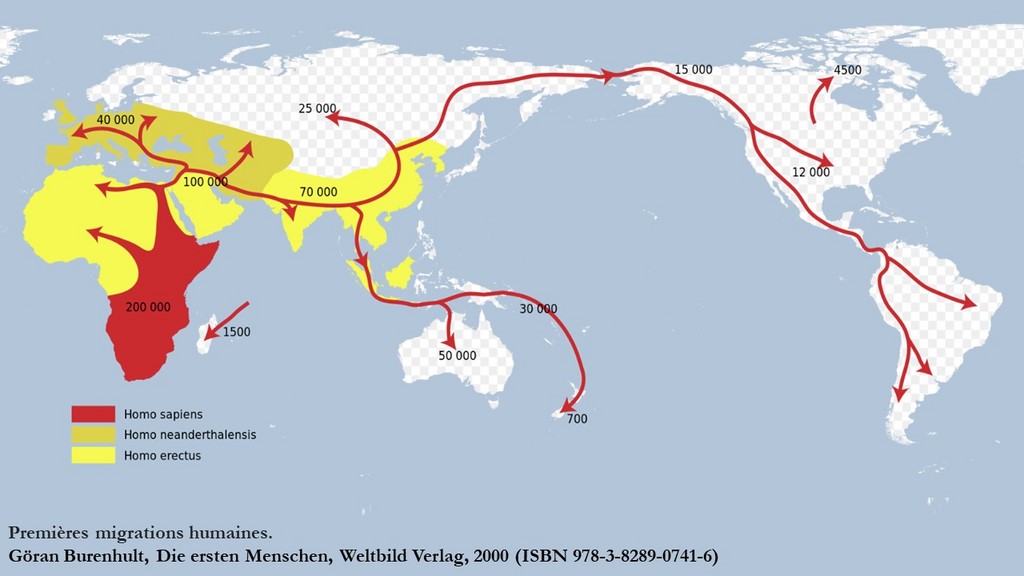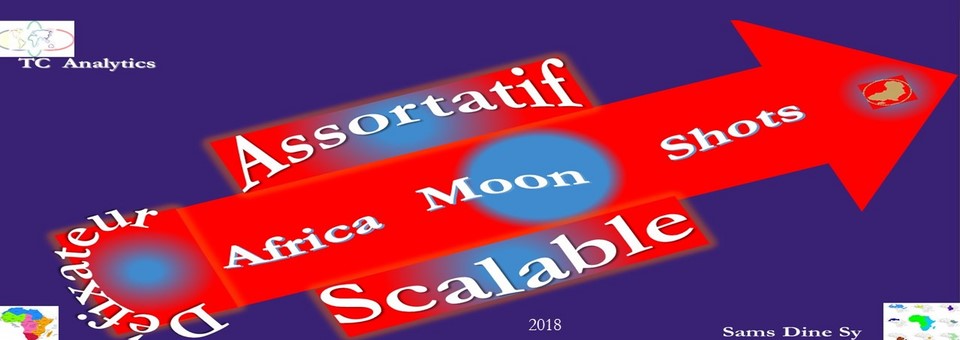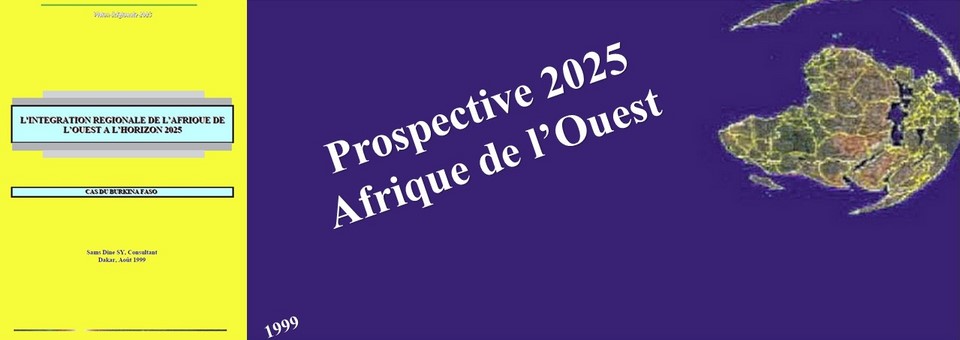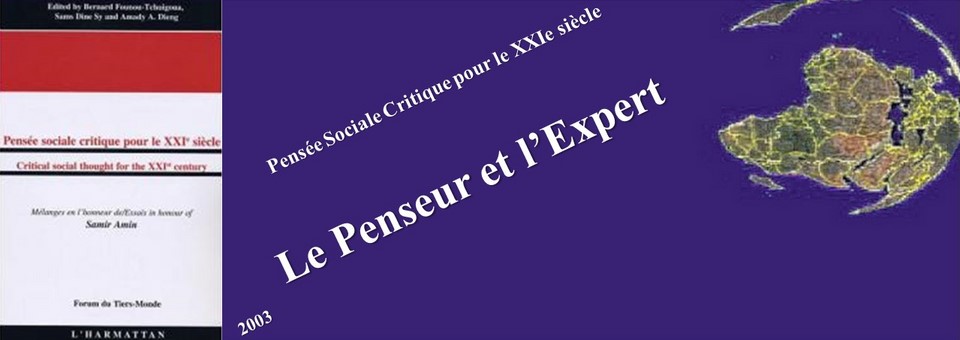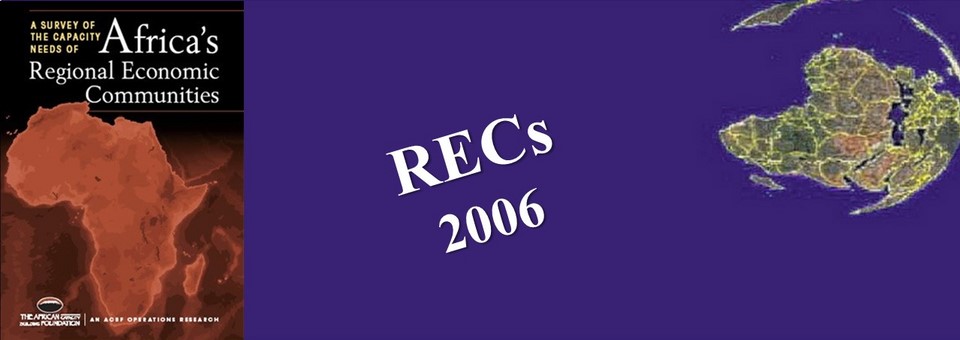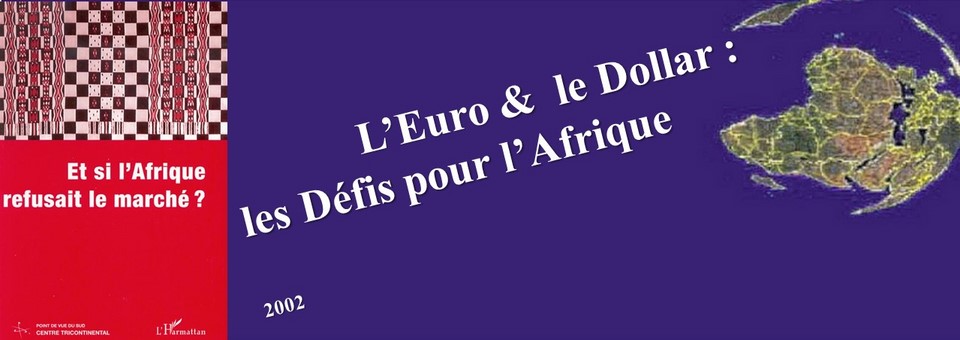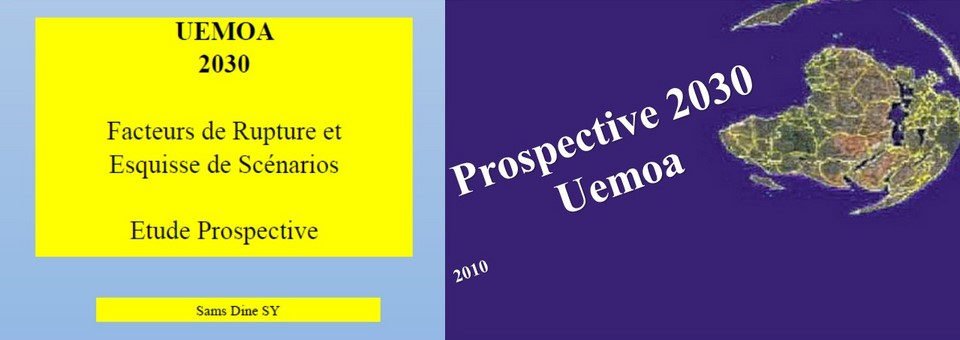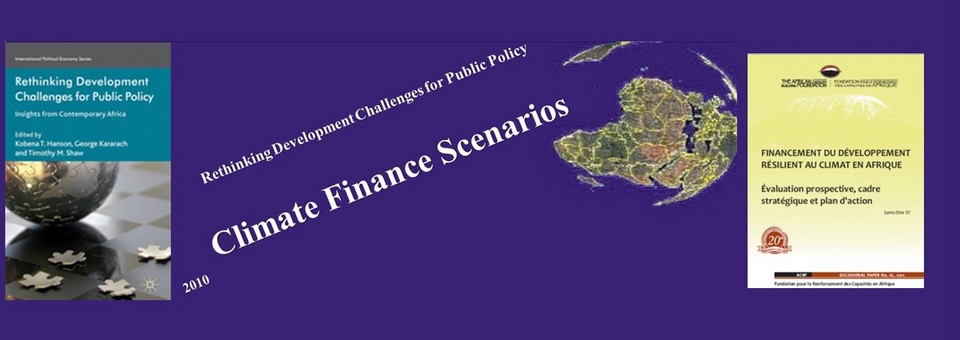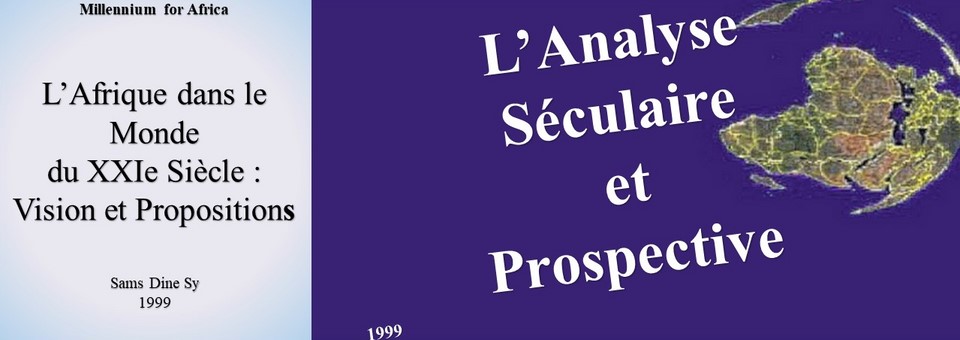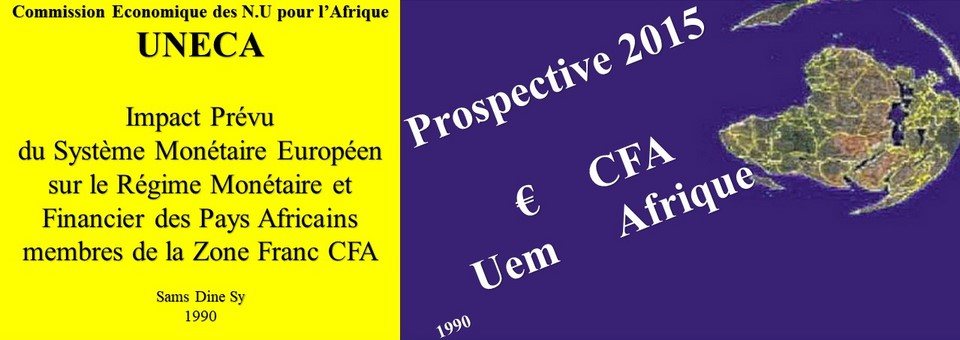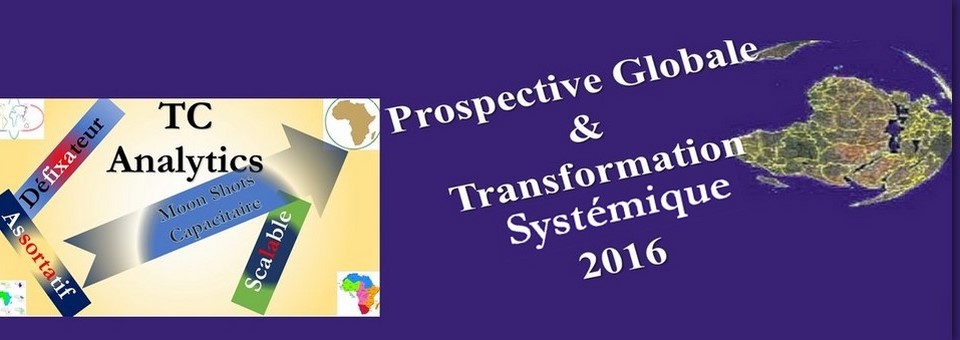TOWARDS CRYPTO QUANTUM POLICY ANALYSIS09/8/2023
TOWARDS CRYPTO QUANTUM POLICY ANALYSIS
- Crypto Quantum : why do they all abdicate? BRICS, USA, G20, UN 2.0 09/8/2023
- 1. Cypto Quantum Policy Analysis : introduction
- 2. Is G192 possible?
- But then why abdicate?
- Why expose the entire ROW space to another "Lehman Brothers Moment"?
- 3. Is a United State possible?
- Project Hamilton and generational conflict
- Why is the US abdicating in turn?
- What is the US exposed to if the conservative position prevails?
- 4. The time for an Intergovernmental Panel of Experts for Quantum Crypto (IPCQ) has come to anticipate the most complex problems
- Digital Cacophony
- First Human Migrations
Crypto Quantum: why do they all abdicate? BRICS, USA, G20, UN 2.009/8/2023
1. Cypto Quantum Policy Analysis : introduction
Crypto Quantum (CQ) is an initiative that mobilizes two fundamental disciplines Mathematics & Physics behind a series of Randomised Controlled Trials (RCT) and Proof of Concept (POC) experiments. The digital currency and the crypto asset are only the most visible part under the effect, more of their over-mediatization than the results of the experiments. Quantum computing (qubits) is also a part of it, certainly less visible but of which it is expected an unprecedented computing power. However, QC is not reduced to these notions because the coupling of quantum mechanics (physics) and the quantum resistant algorithm (mathematics) simply aims to solve the most complex problems in the world in a fraction of a second. Thus, 20 billion digital devices will need to be upgraded or replaced by post-quantum cryptography over the next 20 years,ranging from ATMs to smartphones. Five areas of quantum technologies are concerned: quantum computing, quantum cryptography, quantum communication, quantum sensing and quantum materials.
Another dimension still goes unnoticed despite its impact on the international agenda, visible through the increase in the global stakes with the consequence of reducing the number of major actors, at worst to two, at best to one in a world of 193 member countries of the United Nations. To two if United States/Rest of the World (US/ROW) (F. Zakaria) becomes reality opposing an American-centered vision of the world and "Gulliver's Travels" to that of the BRICS which, under the effect of an exponential growth of technological waves group together the other 192 behind "Zaïbastu of the twenty-first century". Unless "Vasudhaiva Kutumba" adopted in Gandhinagar, Gujarat by G20 Finance 2023 is translated not as "One Earth" One Family · One Future" but by "One State".
The reformulation of the global issue in QC language marks a break in the organization of the main disciplines that contribute to policy analysis, another applied research discipline focused on state activity. They are numerous, from philosophy to biology to management and psychology among others. Until now, Mathematics & Physics are distinguished from other disciplines by a more discreet "leading from behind" but sufficiently powerful approach. Thus, the model system, sequence, network or matrix policy analysis serve as a "royal way" when states and institutions use the same text-book (stage heuristic, multiple streams framework, program theory).
Claiming a full place in policy analysis requires tackling the most explosive problems identified to date because they are likely to cause unprecedented breaks in trend: putting an end to the explosion of inequalities (One Family), the multiplication of extreme climate events (One Earth) and the "Africanization" of global youth (One Future). The global anarchy organized around 193 states is not in favor of it, their number must be reduced to two or even one, no matter as long as they are equipped with a new text-book that anticipates any crime or criminal act, prohibits any form of exclusion or segregation, protects against mediocrity and corruption for the benefit of inclusion and the common. No more permission to hide behind slogans such as Too-Big-To-Fall (TBTF), Too-Interconnected-To-Fail (TITF), Too-Polluter-To-Pay (TPol-TP) to organize anarchy for the purpose of financial hold-ups and massive capital escapes, to discard the weak links. It is impossible to abuse your market power, lender or influencer. End of slavery and colonization in any form. It is not only a question of repressing but also of multiplying opportunities through remote activity in various fields: trade, banking, education, health, research, culture, industry, housing, transport, tourism, nature protection. All QC-players are part of this approach, especially the BRICS and the USA within the G20 and "UN 2.0", including their fintech first-movers, neo-banks, cybertech. They multiply the proof-of-concept experiments, except that as soon as the stopwatch is started, they all decide to abdicate before the exhaustion of the fraction of a second.
Another dimension still goes unnoticed despite its impact on the international agenda, visible through the increase in the global stakes with the consequence of reducing the number of major actors, at worst to two, at best to one in a world of 193 member countries of the United Nations. To two if United States/Rest of the World (US/ROW) (F. Zakaria) becomes reality opposing an American-centered vision of the world and "Gulliver's Travels" to that of the BRICS which, under the effect of an exponential growth of technological waves group together the other 192 behind "Zaïbastu of the twenty-first century". Unless "Vasudhaiva Kutumba" adopted in Gandhinagar, Gujarat by G20 Finance 2023 is translated not as "One Earth" One Family · One Future" but by "One State".
The reformulation of the global issue in QC language marks a break in the organization of the main disciplines that contribute to policy analysis, another applied research discipline focused on state activity. They are numerous, from philosophy to biology to management and psychology among others. Until now, Mathematics & Physics are distinguished from other disciplines by a more discreet "leading from behind" but sufficiently powerful approach. Thus, the model system, sequence, network or matrix policy analysis serve as a "royal way" when states and institutions use the same text-book (stage heuristic, multiple streams framework, program theory).
Claiming a full place in policy analysis requires tackling the most explosive problems identified to date because they are likely to cause unprecedented breaks in trend: putting an end to the explosion of inequalities (One Family), the multiplication of extreme climate events (One Earth) and the "Africanization" of global youth (One Future). The global anarchy organized around 193 states is not in favor of it, their number must be reduced to two or even one, no matter as long as they are equipped with a new text-book that anticipates any crime or criminal act, prohibits any form of exclusion or segregation, protects against mediocrity and corruption for the benefit of inclusion and the common. No more permission to hide behind slogans such as Too-Big-To-Fall (TBTF), Too-Interconnected-To-Fail (TITF), Too-Polluter-To-Pay (TPol-TP) to organize anarchy for the purpose of financial hold-ups and massive capital escapes, to discard the weak links. It is impossible to abuse your market power, lender or influencer. End of slavery and colonization in any form. It is not only a question of repressing but also of multiplying opportunities through remote activity in various fields: trade, banking, education, health, research, culture, industry, housing, transport, tourism, nature protection. All QC-players are part of this approach, especially the BRICS and the USA within the G20 and "UN 2.0", including their fintech first-movers, neo-banks, cybertech. They multiply the proof-of-concept experiments, except that as soon as the stopwatch is started, they all decide to abdicate before the exhaustion of the fraction of a second.
2. Is G192 possible?
Let's start with the BRICS so far proud to show their lead in QC. Since its creation in 2006, only one question has haunted this G5: to counter the USA, is a G192 possible? Yes we can! This slogan (B. Obama. A promised land. Fayard. 2020) sums up the response of the XV BRICS 2023 from Sandton, South Africa. The steps taken already increase from 5 to 11, then 23 member countries before the almost inevitable quantitative leap once the de-dollarization and circumvention of the Swift network recorded by the adoption of the first common digital currency. The proliferation of EFCs confirms this trend. CBDC (Central Bank Digital Currency) projects have been abounding there since the beginning of the 20s while the G7 is lagging behind. The ongoing rapprochement with several regional economic communities will be decisive in integrating 74 other member countries of the Eurasitic Economic Union (EAEU), the Association of Southeast Asian Nations (ASEAN) and the African Union (AU). The European Union is beginning to decode the message addressed to it to the point that one of its members has tried to join the XV BRICS. Ending the war in Ukraine is nevertheless a prerequisite for any negotiation, which supposes - at least - to send an official apology to the former Soviet Bloc humiliated in 1990 by the European Commission which replicates a "Shatalin" version of the Economic and Monetary Union (EMU) Programme in 500 days where it took it nearly half a century to achieve only the Single Currency. Hiding behind the G7 and the "Houston Four" (IMF, World Bank, OECD, EBRD) does not prevent us from meditating on this quote from T. Morrison (Intervene? Droits de la personne et raisons d'état, Grasset 1994 "There are metaphors that have sent people to useless wars, to useless deaths..."
But then why abdicate?
Except that during the same XV Summit, this G5 prefers to abdicate on the chapter "common currency" after having made it a prerequisite for the formation of the G192. He takes refuge behind "Last Mile" embodied by local currencies in the hope of convincing Africa to join him. The fundamental question then arises: is a QC transformation possible when all hopes of achieving a single digital currency are abandoned? By prioritising enlargement, isn't the G5 positioning itself as a follower? Does it offload itself to ASEAN or EAEU, effectively excluding other regions of the world? Does he seek to reconstitute the Soviet Bloc and the G77 even if it means merging them? Does he think the G20 is better equipped for this agenda? If there is only withdrawal, nostalgia or resignation, behind this posture, does he only measure the impact of his decision. Where is the study of the potential impact of such an expansion on the reduction of inequalities, particularly through access to banking and financial services? Does he even know what "last mile" implies especially on the largest and least advanced continent of the world?
Before answering these embarrassing questions, it is necessary to trace the evolution of the logic behind the notion of a forum bringing together a group of countries with a multilateral agenda (GCMA) in which all want to be subscribed. To the point that being excluded almost amounts to a condemnation as shown by the Russian example reducing its first group to the current G7. This logic stems from the structuring of the world into 2 Blocs at the end of the 2nd World War. In response to the injunction to choose sides, many countries claim to be "Non-Aligned".
The publication of the Club of Rome report "The Limits to Growth (D. H. Meadows, D. L. Meadows, J. Randers and W. L. Behrens, The Limits to Growth, New York, Universe Books, 1972) better known as the "Meadows Report to the Club of Rome 1972" changes the situation when it is perceived as the manifestation of a "technocratic coup". Almost all of these countries organized resistance within the United Nations; but as soon as it was born, the G77 became the target of the 2 Blocs who rushed to atomize it to counter any attempt to get out of the duopoly. The oil crisis does the rest: implosion of the group, hold-up of the century with the massive exodus of petro and euro-dollars to the US, assignment of countries in programs of financial austerity and shock therapies. Half a century later, they are still not recovering. The trauma caused is such that what remains of the same group has simply forced the Secretary-General of the United Nations to postpone to a later date (if not renounce it) the Summit of the Future intended to codify the plan for the reform of the UN, officially known as Our Common Agenda, that defines its mission over the next quarter century.
Once the end of the Soviet bloc was recorded, the forum approach was resumed, as if to magnify the role of the great powers, first in the form of Triad (USA, EU, Japan) and G8. This was nevertheless without counting on the evolution of forms of globalization hitherto reduced to the alternative between the exclusive (European) and the intensive (American). The eruption of "emerging markets", including a "tiger", confirms their extensive form behind globalized value chains and "trade in tasks". The Euro-Asian area is the theater hence the idea of creating the G5 which has become essential because of its economic weight. Its integration with the G7 in another forum follows from this. The more open G20 facilitates consensus before the United Nations decides on divisive or even conflictual issues such as the explosion of inequalities and the multiplication of extreme climate events. Significant progress is to be attributed to it, as shown in the latest communiqué of the G20 Finance 2023 with the statement of a shared vision: "One Earth · One Family · One Future" as well as a precise agenda on the role of crypto-assets. It was therefore expected of the main concerned - XVth BRICS - to specify his contribution instead of abdicate.
Before answering these embarrassing questions, it is necessary to trace the evolution of the logic behind the notion of a forum bringing together a group of countries with a multilateral agenda (GCMA) in which all want to be subscribed. To the point that being excluded almost amounts to a condemnation as shown by the Russian example reducing its first group to the current G7. This logic stems from the structuring of the world into 2 Blocs at the end of the 2nd World War. In response to the injunction to choose sides, many countries claim to be "Non-Aligned".
The publication of the Club of Rome report "The Limits to Growth (D. H. Meadows, D. L. Meadows, J. Randers and W. L. Behrens, The Limits to Growth, New York, Universe Books, 1972) better known as the "Meadows Report to the Club of Rome 1972" changes the situation when it is perceived as the manifestation of a "technocratic coup". Almost all of these countries organized resistance within the United Nations; but as soon as it was born, the G77 became the target of the 2 Blocs who rushed to atomize it to counter any attempt to get out of the duopoly. The oil crisis does the rest: implosion of the group, hold-up of the century with the massive exodus of petro and euro-dollars to the US, assignment of countries in programs of financial austerity and shock therapies. Half a century later, they are still not recovering. The trauma caused is such that what remains of the same group has simply forced the Secretary-General of the United Nations to postpone to a later date (if not renounce it) the Summit of the Future intended to codify the plan for the reform of the UN, officially known as Our Common Agenda, that defines its mission over the next quarter century.
Once the end of the Soviet bloc was recorded, the forum approach was resumed, as if to magnify the role of the great powers, first in the form of Triad (USA, EU, Japan) and G8. This was nevertheless without counting on the evolution of forms of globalization hitherto reduced to the alternative between the exclusive (European) and the intensive (American). The eruption of "emerging markets", including a "tiger", confirms their extensive form behind globalized value chains and "trade in tasks". The Euro-Asian area is the theater hence the idea of creating the G5 which has become essential because of its economic weight. Its integration with the G7 in another forum follows from this. The more open G20 facilitates consensus before the United Nations decides on divisive or even conflictual issues such as the explosion of inequalities and the multiplication of extreme climate events. Significant progress is to be attributed to it, as shown in the latest communiqué of the G20 Finance 2023 with the statement of a shared vision: "One Earth · One Family · One Future" as well as a precise agenda on the role of crypto-assets. It was therefore expected of the main concerned - XVth BRICS - to specify his contribution instead of abdicate.
Why expose the entire ROW space to another "Lehman Brothers Moment"?
By abdiking, the BRICS leave the field open to all kinds of initiatives of platforms that venture into crypto, the blockchain among others, not hesitating to abuse their dominant position in the least developed countries, cause the collapse of algo coin following bankruptcies, expose the weak links of their banking system to collateral damage and healthy banks to systemic risks. Recent news is full of slippages that have led, for example, to an international financial scandal.
The over-media coverage of the FTX affair masks these abuses, which invites us to sound the alarm in order to prevent other more serious ones. No banking system in the world is more immune to disruption since the launch of the stablecoin (PYUSD). All this would then be only the tip of the iceberg. The "Lehman Brothers 2008 moment" haunts all monetary and banking systems that do not master Artificial Intelligence or QC even less the management of electrons and Crypto-Assets. Banks on the continent, particularly remote banking, are most exposed.
As a reminder, in 2008, about 25,000 billion dollars went up in smoke, depriving the major international stock exchanges of half of their capitalization, or twice the US gross domestic product (GDP). Even the BRICS were hit when the Moscow Stock Exchange lost 72% of its value. Those responsible for this moment are however known since it stems from the decision of the Federal State to write off all the liabilities of American firms and banks to cushion the shock of 9/11. Believing everything allowed, they paid the price because convinced to be Too Big to Fall, Too Interconnected to Fail.
Africa - through the West and Central regions - is the continent most exposed to this second "Lehman Brothers" moment. Banks in particular, as well as quantum platforms - including the largest de facto brands excluded from the race between the most innovative Fintechs as long as their Opex ratio remains well below 6% - are the first sources of massive capital escapes through backdoors such as a bank run to the point of destroying even a healthy bank, bankruptcies (Orange Bank). There will be no shortage of takeover proposals by a vulture fund once the acquisition cost has been reduced to a symbolic monetary unit, causing a massive capital flight operation.
The main difference between these two moments is that this time the Federal State has taken the lead to take advantage of the next one by making the US the main beneficiary of any massive capital escapes, to the detriment of the ROW. A test-bed has already identified the banks most weakened by the rate hike decided by the Fed as part of the fight against inflation (nearly 190). The Silicon Valley Bank affair is the visible part of it.
By inviting 6 new members to join it, the G5 is cowering in a hut instead of mobilizing its projection capacity to transform the world as it has claimed since its creation. It invites 3 of the main victims of the hold-up of the century who have still not digested it. He adds 3 others to probably pick up the pieces of the G77. An attitude that is anything but prospective when the choice to enlarge refers to "constructive ambiguity" like a mimicry of this European Union that never ceases to celebrate its addiction to the stages heuristic inherited from the Marshall Plan and that it has just celebrated again with the creation of the European Political Community (EPC). A follower posture that also forces the US to be part of another more disruptive approach and to regain the initiative in the ongoing QC transformation to demonstrate to the world that not only are they not the main driver of the explosion of inequalities, the multiplication of extreme events and the exclusion of global youth, But let them have the magic wand to reverse these trends. CQ will reach it with the Dollar, the Fed, its banks, firms and remote commerce platforms. In short, the delay accumulated in the POC would only be a way to move back to better jump to "One State" to the "last mile".
The over-media coverage of the FTX affair masks these abuses, which invites us to sound the alarm in order to prevent other more serious ones. No banking system in the world is more immune to disruption since the launch of the stablecoin (PYUSD). All this would then be only the tip of the iceberg. The "Lehman Brothers 2008 moment" haunts all monetary and banking systems that do not master Artificial Intelligence or QC even less the management of electrons and Crypto-Assets. Banks on the continent, particularly remote banking, are most exposed.
As a reminder, in 2008, about 25,000 billion dollars went up in smoke, depriving the major international stock exchanges of half of their capitalization, or twice the US gross domestic product (GDP). Even the BRICS were hit when the Moscow Stock Exchange lost 72% of its value. Those responsible for this moment are however known since it stems from the decision of the Federal State to write off all the liabilities of American firms and banks to cushion the shock of 9/11. Believing everything allowed, they paid the price because convinced to be Too Big to Fall, Too Interconnected to Fail.
Africa - through the West and Central regions - is the continent most exposed to this second "Lehman Brothers" moment. Banks in particular, as well as quantum platforms - including the largest de facto brands excluded from the race between the most innovative Fintechs as long as their Opex ratio remains well below 6% - are the first sources of massive capital escapes through backdoors such as a bank run to the point of destroying even a healthy bank, bankruptcies (Orange Bank). There will be no shortage of takeover proposals by a vulture fund once the acquisition cost has been reduced to a symbolic monetary unit, causing a massive capital flight operation.
The main difference between these two moments is that this time the Federal State has taken the lead to take advantage of the next one by making the US the main beneficiary of any massive capital escapes, to the detriment of the ROW. A test-bed has already identified the banks most weakened by the rate hike decided by the Fed as part of the fight against inflation (nearly 190). The Silicon Valley Bank affair is the visible part of it.
By inviting 6 new members to join it, the G5 is cowering in a hut instead of mobilizing its projection capacity to transform the world as it has claimed since its creation. It invites 3 of the main victims of the hold-up of the century who have still not digested it. He adds 3 others to probably pick up the pieces of the G77. An attitude that is anything but prospective when the choice to enlarge refers to "constructive ambiguity" like a mimicry of this European Union that never ceases to celebrate its addiction to the stages heuristic inherited from the Marshall Plan and that it has just celebrated again with the creation of the European Political Community (EPC). A follower posture that also forces the US to be part of another more disruptive approach and to regain the initiative in the ongoing QC transformation to demonstrate to the world that not only are they not the main driver of the explosion of inequalities, the multiplication of extreme events and the exclusion of global youth, But let them have the magic wand to reverse these trends. CQ will reach it with the Dollar, the Fed, its banks, firms and remote commerce platforms. In short, the delay accumulated in the POC would only be a way to move back to better jump to "One State" to the "last mile".
3. Is a United State possible?
"But other metaphors have pushed people to negotiation, to peace conferences." T. Morrison undoubtedly inspires the Federal State when he decides to "place the highest urgency on research and development efforts in the potential options for the design and deployment of a CBDC in the United States". He thus gives his explicit support to the Fed which through its Hamilton project conducts proof-of-concept experiments on 7 private platforms for "a global payment system, in near real time, 24/7".
The QC transformation is part of a more ambitious vision of the US relationship to the world from the dollar:
- move from being a US currency reserved for 1/3 of the world's population to the currency of the hitherto excluded 2/3;
- allow the poorest half of the world's population to earn 52% of income while the richest 10% will settle for 8.5%;
- develop a financial services industry that is accessible to more than half of the world's population and excluded or underbanked.
There is no longer any question of associating the "American miracle" even less the dollar and the Fed with the explosion of inequalities, financial and banking exclusion and the destruction of the planet. A radical paradigm shift.
Moreover, the G20 Finance Summit 2023 took note of this through three unifying themes of a vision: "One Earth, One Family, One Future". Delivering results requires the implementation of the Digital Public Infrastructure (DPI) Programme to accelerate financial inclusion to the "last mile" and the Financial Inclusion Action Plan (FIAP).
The QC transformation is part of a more ambitious vision of the US relationship to the world from the dollar:
- move from being a US currency reserved for 1/3 of the world's population to the currency of the hitherto excluded 2/3;
- allow the poorest half of the world's population to earn 52% of income while the richest 10% will settle for 8.5%;
- develop a financial services industry that is accessible to more than half of the world's population and excluded or underbanked.
There is no longer any question of associating the "American miracle" even less the dollar and the Fed with the explosion of inequalities, financial and banking exclusion and the destruction of the planet. A radical paradigm shift.
Moreover, the G20 Finance Summit 2023 took note of this through three unifying themes of a vision: "One Earth, One Family, One Future". Delivering results requires the implementation of the Digital Public Infrastructure (DPI) Programme to accelerate financial inclusion to the "last mile" and the Financial Inclusion Action Plan (FIAP).
Project Hamilton and generational conflict
Unlike that of the Federal State, the posture of GAFAM and the FED in the face of the QC revolution raises questions while their status makes them first-movers.
GAFAM are excluded from the Hamilton project while they are considered the first generation "digital natives" (90s) which eclipsed the previous one qualified as "computer natives". A brief look back makes it possible to measure the consequences of this exclusion on the digital currency and to make the link with the "digital cacophony" a prospective sketched by the American defense by 2015.
Until the mid-70s, the computer revolution was reduced to the production of giant computers by the first generation "computer natives" (IBM, Honeywell Bull ...) until a proof-of-concept experimented with the first mini-computer without any public support except individually organized as a "broth of culture".
The experiment is described as a failure by the public authorities who did not even want to hear about this proof-of-concept assimilated to a return to the Stone Age. It is exfiltrated to the USA to join the precursors to the first generation of digital of the 90s or 'digital natives'. They are the subject of a test-bed designed to assess the extent to which their global expansion was compatible with a domestic vision of power concentrated in US hands. Otherwise, how would the "digital cacophony", the Gulliver Travails and "Zaibastu" expected in 2015 result from the exponential growth of technological innovations and would be synonymous with the "dispersion" of power on a global scale.
The robustness of these scenarios, tested since their construction, sheds light on the US posture in the face of QC.
GAFAM are excluded from the Hamilton project while they are considered the first generation "digital natives" (90s) which eclipsed the previous one qualified as "computer natives". A brief look back makes it possible to measure the consequences of this exclusion on the digital currency and to make the link with the "digital cacophony" a prospective sketched by the American defense by 2015.
Until the mid-70s, the computer revolution was reduced to the production of giant computers by the first generation "computer natives" (IBM, Honeywell Bull ...) until a proof-of-concept experimented with the first mini-computer without any public support except individually organized as a "broth of culture".
The experiment is described as a failure by the public authorities who did not even want to hear about this proof-of-concept assimilated to a return to the Stone Age. It is exfiltrated to the USA to join the precursors to the first generation of digital of the 90s or 'digital natives'. They are the subject of a test-bed designed to assess the extent to which their global expansion was compatible with a domestic vision of power concentrated in US hands. Otherwise, how would the "digital cacophony", the Gulliver Travails and "Zaibastu" expected in 2015 result from the exponential growth of technological innovations and would be synonymous with the "dispersion" of power on a global scale.
The robustness of these scenarios, tested since their construction, sheds light on the US posture in the face of QC.
Why is the US abdicating in turn?
Two decades later, GAFAM among other two-sided platforms have nothing more to contribute to the QC revolution. Their disappearance under the effect of this revolution is no longer to be excluded and the figures speak for themselves since by 2030 the revenues of Fintech in Asia (APAC) would far exceed those of the US (600 Thousand Billion against 520) (Global Fintech 2023: reimagining the future of finance BCG +QED Investors May 2023). The dispersion of power is in fact recorded.
By registering in the two-sided profile, they are ineligible for the status of global platform essential to embody the QC transformation. The latter offers outsiders the opportunity to come out of the shadows. The second generation of "digital natives" and that of "computer natives" was born. The two intersect around crypto and digital creating a disconcerting atmosphere by being considered sometimes as allies, sometimes as enemies especially when they compete for the status of "fintech" or "neobank" for example. The irony is that the pioneer of the first "computer natives" resurfaces to pilot the largest "Quantum" project with the goal of a 1121-qubit processor with the most powerful computing capacity in the world.
The adventure of the "stablecoin" that has just been launched illustrates this atmosphere and provides a beginning of explanation for the Fed's posture. The newborn hoped to be baptized when the 46th Jackson Hole was held in 2023. It was all in the chosen theme "Structural Shifts in the Global Economy"
The main consequence of this postponement is to expose the Federal State to another "moment" whose magnitude must be measured. This makes the abdication of the G5 all the less understandable since within it other proofs of concept had been conducted long before.
By registering in the two-sided profile, they are ineligible for the status of global platform essential to embody the QC transformation. The latter offers outsiders the opportunity to come out of the shadows. The second generation of "digital natives" and that of "computer natives" was born. The two intersect around crypto and digital creating a disconcerting atmosphere by being considered sometimes as allies, sometimes as enemies especially when they compete for the status of "fintech" or "neobank" for example. The irony is that the pioneer of the first "computer natives" resurfaces to pilot the largest "Quantum" project with the goal of a 1121-qubit processor with the most powerful computing capacity in the world.
The adventure of the "stablecoin" that has just been launched illustrates this atmosphere and provides a beginning of explanation for the Fed's posture. The newborn hoped to be baptized when the 46th Jackson Hole was held in 2023. It was all in the chosen theme "Structural Shifts in the Global Economy"
Failing to proceed with the baptism of this algo coin, it was expected of the Fed to enlighten the debate on the QC, at least its monetary and financial implications. The absence of any reference and silence contrasts with the desire to hide behind the main mandate of fighting inflation. The ECB's support was not long in coming. Yet there are many reasons to justify a more ambitious posture of the Fed and more consistent with its mandate in the conduct of proof of concept: to transform the dollar into a global currency until the Last Mile, to demonstrate that it is not responsible for the explosion of inequalities, to make banking and financial services accessible to all on the planet.
Probably not to crystallize the conservative point of view on an "unforgivable drift "woke" that penalizes savers and threatens the majors of Big Oil", a threat against the freedom to arm, pollute, exclude, submit, deprive, punish ... In other words, to perpetuate slavery, segregation, colonization and assignment as long as free and everywhere access to resources requires it.
The main consequence of this postponement is to expose the Federal State to another "moment" whose magnitude must be measured. This makes the abdication of the G5 all the less understandable since within it other proofs of concept had been conducted long before.
What is the US exposed to if the conservative position prevails?
By letting it happen, the Fed imitates Wall Street of the 20s when this stock market was faced with the same type of dilemma: low profile so as not to thwart the will displayed by the conservatives of the time to go back on all the amendments ending several centuries of slavery and institutionalize the "Black Codes" under the name "Jim Crow Laws" over a period from 1877 to 1964. This attitude makes the "Jim Crow Moment" the heaviest of the "American Century". Its defenders, particularly in the southern states, succeeded in influencing all federal institutions: doing everything possible to maintain the status quo, even if it meant triggering the "Great Depression" as long as former slaves were the main victims. The blocking of the New Deal by Congress and the Supreme Court does the rest just to send them this message: Did you like slavery? You will love being "separate but equal" since it will be worse. We know the rest: the obstinate refusal of any concession deepens the Great Depression to the point of triggering the "2nd World War" as long as they serve as cannon fodder since it is necessary to mobilize troops on all continents to fight Nazism.
The ensuing pause was quickly interrupted once this other scourge was defeated. The conditions for a second "Jim Crow moment" are recreated by the extent of the humiliation of the European vanquished: to clear their honor, it was necessary to transform defeat into victory, not against Nazism but against all those former slaves whose participation is nevertheless decisive in victory. Hence the organization of a second "Jim Crow moment" with the "Great Assignment". The Marshall Plan designates the hostage, taking away all his colonial possessions reduced in turn to hostages in the hands of the former. The rest is only a matter of staging by the creation of the "United Nations but hierarchical", the reduction of these communities in the Third World to assist because poor, indebted, less advanced, badly off, exposed, bankrupt, without past, without future, excluded from globalization, proletarianized, terrorized, not resilient, garbage ... until the attacks of 9/11 triggered against them the global war against terrorism, even if it meant fanning it with the use of special forces to better assign all the former colonies.
4. The time for an Intergovernmental Panel of Experts for Quantum Crypto (IPCQ) has come to anticipate the most complex problems
The "Lehman Brothers moment" of 2008 undoubtedly upset the lines between USA and ROW. Nothing now excludes a 3rd "Jim Crow moment" if Congress, possibly the Supreme Court do the same, block any initiative on the QC until it is reassured that its implementation perpetuates slavery under the pretext of defending the interests of rich folds, polluters and aging populations. With CQ it will not be a United State because in the meantime the computing power will have allowed J. Webb to prove the interstellar origin of homo americanus thus breaking definitively with the version that dates it back to the first human migrations.
CQ will also consecrate the "Acheiropoiete Attitude" in place of the "Manifest Destiny" which became obsolete with the claims of "Zaîbastu" to serve as an alternative.
Faced with this dystopian scenario, it is important to quickly set up an IPCQ at the initiative of the ROW this time to anticipate all these moments of trend break and leave it to the QC to resolve the issues raised by inequalities, extreme climate events and youth.
The G20 and UN 2.0 should seize this initiative instead of simply acknowledging the impotence of the BRICS and the US to assume their responsibility in the deployment of the QC.
Sams Dine SY*, 09/8/2023
*Former facilitator specialized in expert group management
Facilitator of the https://samsdinesy.org/ platform
Faced with this dystopian scenario, it is important to quickly set up an IPCQ at the initiative of the ROW this time to anticipate all these moments of trend break and leave it to the QC to resolve the issues raised by inequalities, extreme climate events and youth.
The G20 and UN 2.0 should seize this initiative instead of simply acknowledging the impotence of the BRICS and the US to assume their responsibility in the deployment of the QC.
Sams Dine SY*, 09/8/2023
*Former facilitator specialized in expert group management
Facilitator of the https://samsdinesy.org/ platform
Digital Cacophony
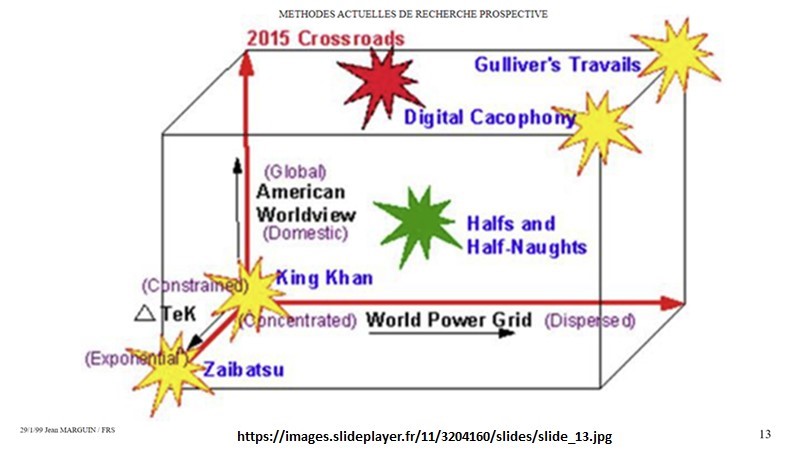
First Human Migrations
